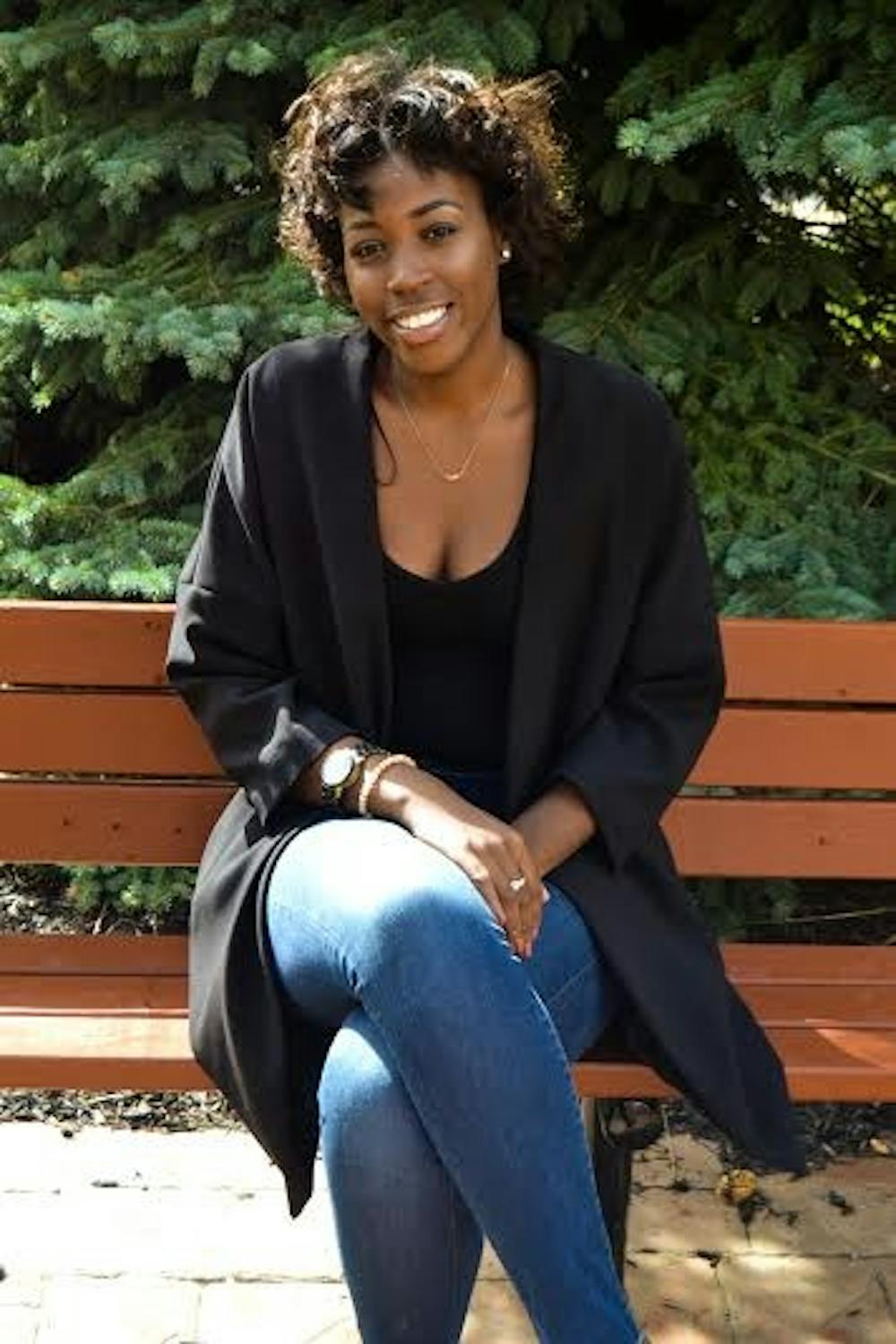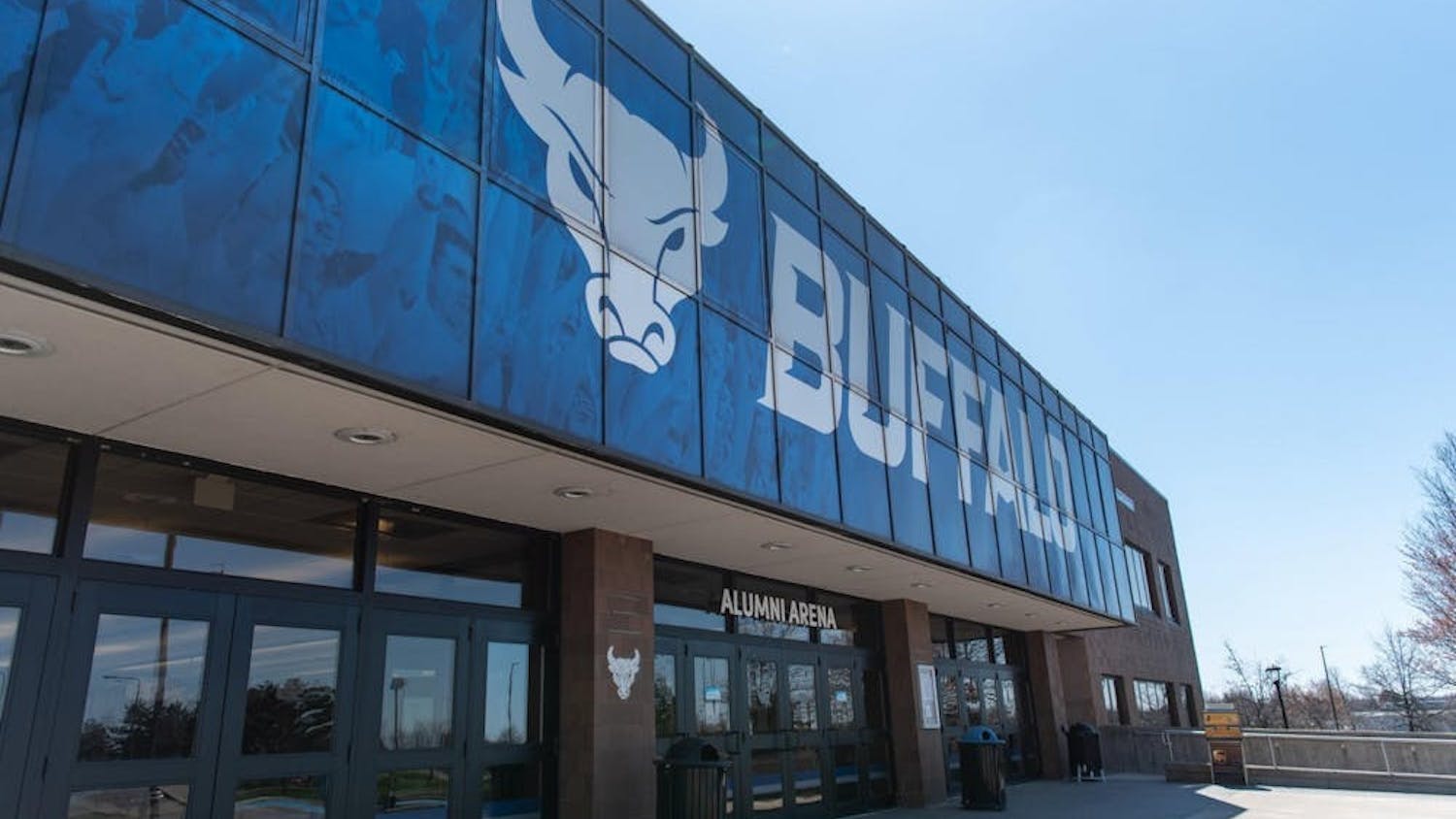This story is part of a series of stories written by student journalists who participated in UB’s Foreign Reporting study abroad program in Berlin, Germany this past winter.
I first saw him as he stood on our hostel’s balcony and stared at the snow that coated the trees and transformed the parking lot of our Berlin youth hostel into a winter wonderland. He had his face plastered to the window as if he wanted to go through it. When he noticed me, he turned, yelped a tiny, shy “hello,” and slipped back up the stairs toward his room.
I smiled.
The hello comforted me as only the voice of a child can. He reminded of my little brother, Armando. He gave me courage.
I had just arrived in Berlin with my UB study abroad foreign reporting class and I was nervous. I would be there for three weeks, meeting with journalists and exploring a world capital that had always intrigued me. I didn’t speak the language, barely knew my fellow-UB roommates and had no idea what was in store for me.
I learned the boy’s name the next day – Mohammed. He was eight and like me, he didn’t speak German. And he wasn’t in Berlin for a vacation.
He, his parents and his equally adorable sisters, ages five and almost one, were refugees from Syria. They – like almost a million people displaced by Syria’s civil war – had come to Germany to seek asylum. Unlike me, they hadn’t arrived by plane and then a taxi.
They packed onto a tiny, dangerous raft and sailed from Turkey to Greece and then, somehow, made the unimaginable voyage to Berlin safely.
You have to talk about refugees in Europe today. It’s the dominant issue in European politics right now as Europe – and particularly Germany – struggles to figure out what to do with so many needy people. And of course, there are those who are afraid – worried that the refugees are dangerous.
My professor, Jody Kleinberg Biehl, talked about them a lot during our UB classes.
As part of the class, she also arranged for us to volunteer at a refugee center. We spent part of one afternoon handing out clothes to newly arrived Syrian refugees who were being housed in a former airport built by the Nazis and then used by the Americans and British for the Berlin Airlift.
Berlin teems with history. And I got my share on the trip.
But it is Mohammed’s face that has stuck with me.
The next time I saw him, we were in the hall of our dormitory and I desperately wanted to talk to him. His family of five was living with all the possessions they owned in a room like mine – with four bunk beds and small lockers for closets. They kept their food in the room too, although they couldn’t cook much.
When I saw Mohammed, I called out to him. My roommate grabbed her bag of M&M’s she had brought from home and we each poured a handful in our hands. As he walked toward us, we kept saying, “candy,” “chocolate.” It was the only thing I could think of to get his attention.
I popped one in my mouth and smiled, despite my dislike for chocolate. I offered him one and he took it and began to chew. He looked scared, staring up at me. He didn’t understand anything I said. I gave him a thumbs up. He licked the candy off his lips and smiled slightly.
Mohammed impacted my trip in ways he will never know.
His family’s story moved me so much. I wanted to find some small way to bring him comfort. I also wanted him to know that strangers – particularly Americans – can be kind, generous and understanding. I know that’s a lot to expect from an M&M. But, I think my fellow students and our professor were the first Americans Mohammed and his family had ever met. And, as much as Americans think we live in “the greatest country on Earth,” many people from other countries have a very different idea about us and our politics.
I learned that on this trip.
I wanted Mohammed to remember something good about Americans. I know America pokes in and out of conflicts – particularly in the Middle East – when it is convenient and often we leave messes behind. I wanted Mohammed to know that Americans are not our politics, policies and politicians – at least not always. I hope I made a small impression on him and that maybe one day he will have a fuzzy memory of a nice American.
Plus, Mohammed reminded of my little brother Armando and of the afternoons we spent after school together playing games, cooking, doing homework. We sometimes fought but we also learned from each other. My brother taught me patience.
Today, Armando is a19-year-old student athlete at Bard College. Time is short. We are busy. We don’t have hours to lie on the couch and laugh.
Mohammed reminded me of easier times.
I also imagined what my family would have done if we had had to sneak out in the middle of the night and ride a raft to freedom. I hope we would have had the grace Mohammed’s family showed.
I didn’t know what Germany had in store for me. I feared the distance, the loneliness of not being able to communicate with my family and friends. Seeing Mohammed grounded me.
It reminded me how strong family bonds can be and what families can do when they are together. It gave me courage to be on my own – to push through my first moments of uncertainty – so that I could have an amazing, life-changing experience in Berlin.
I know my fears were petty compared to his and his family’s worries. I had wanted – begged – for the chance to go to Germany. He had had no choice. I spent three weeks not understanding what everyone said. Mohammed has years of working to fit in ahead of him.
Fear is rooted in not knowing. It causes unwanted anxiety and makes you want to retract. But fear can also be revelatory. For me, pushing past fear led me to meet an amazing German graffiti artist and write an article I’m proud of. It also helped me conquer my panic of being alone. Fear led me to try international foods and opened me to meeting new creative and inspiring Berliners and new friends I hadn’t met in my four years at UB.
It also made me even more grateful for the life I have been given.
Mohammed taught me that struggling with discomfort is part of life. He taught me about being resilient.
Thousands of miles away from Berlin, now, I want to tell people about him and about his story and the small connection we shared. An 8-year-old boy reminded me of the importance of lending a hand. He reminded me that no matter where we are, we are not alone, that the people we love can love from afar and that strangers can and often are kind.
He helped me overcome my anxiety of distance and watching him and his family made me realize how much people can accomplish when they have a goal.
Mohammed’s wave of goodbye, the night before my departure, ended our brief friendship. I hope Mohammed does great things in his adopted home. I hope he overturns stereotypes and helps build a stronger, more diverse Europe. For me, he will forever be a reminder of the power of the simplest greeting: “Hello.”
Christina Dunn is a contributing writer. Questions and comments about this story can be directed at news@ubspectrum.com.





